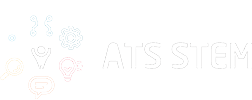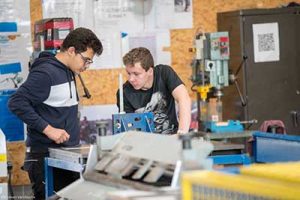STEM is a central concern of educational policy makers across the world as it is considered essential for global economic positioning. There is a global recognition within the labour market of the imminent shortages of STEM workers at all levels, both those working in professional and in other roles.
STEM education is a priority for all of the ATS STEM partners and each country/region is already engaged in implementing specific policy actions as well as activities to promote the development of STEM knowledge and competences across their educational sectors. The project also considers the role of assessment and develops guidelines for effective, formative, assessments, to aid the teacher to better understand STEM education goals. Developing and embedding digital approaches to assessment are integral to the work of the project.
STEM education can eliminate the traditional barriers between science, technology, engineering and mathematics. This reflects the ‘real world’ where individuals draw on a wide range of integrated skills from overlapping knowledge bases to solve problems. Therefore an integrated curriculum could provide opportunities more relevant, less fragmented and more stimulating experiences for learners. However, it is difficult to implement as the traditional segmented approach to the delivery of curriculum subjects has dominated educational systems.
Recent efforts to develop technology-based assessments that measure transversal skills have enhanced the creation of classroom-based digital tasks and activities that can cultivate these skills in students and therefore should now be a priority for all education systems. As STEM education allows students to develop a range of transversal skills, it is particularly important for STEM educators to develop such tasks. In keeping with best practice recommendations for teaching maths and science, these tasks should integrate technology and use assessment as part of instruction.
The widespread proliferation of technology provides an extensive range of approaches, resources, and tools that can be used to support teaching, learning and assessment in STEM. Students’ progress is measured in relation to three key science constructs – declarative knowledge (knowing ‘what’), schematic knowledge (knowing ‘why’) and procedural/ strategic knowledge (knowing ‘how to use and apply’).
The ATS -STEM project aims to develop transversal STEM competences for students and appropriate digital assessment methods. The project supports teachers by customising their learning designs to better meet the needs of their students, who create practical examples of how new ICTs can be harnessed to foster STEM skills and competences in students. Based on development of teaching, learning and assessment approaches, policy makers will have a wide range of best practice examples which will allow for such practices to spread and be adopted towards affecting meaningful change in STEM education in Europe.





